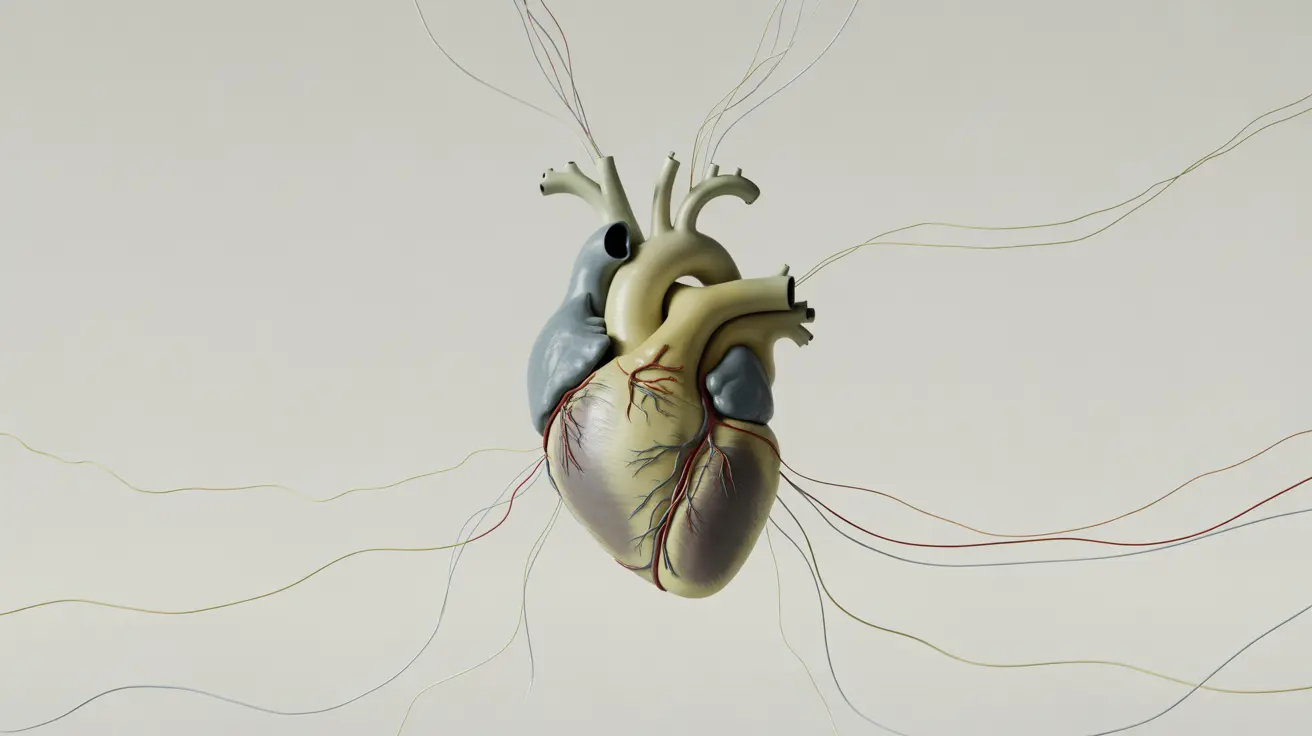When dealing with anemia, many people wonder about its effects on body weight and overall metabolism. This comprehensive guide explores the complex relationship between anemia and weight fluctuations, helping you understand how this common blood condition might influence your weight management journey.
Anemia, particularly iron deficiency anemia, can affect various aspects of your body's functioning, from energy levels to metabolic processes. Let's examine the specific ways anemia might impact your weight and what you can do about it.
How Anemia Affects Your Body Weight
Anemia's influence on body weight isn't straightforward and can vary significantly among individuals. The condition primarily affects your body's ability to transport oxygen efficiently, which can lead to various metabolic changes and energy-related issues.
Impact on Appetite and Food Intake
Many people with anemia experience changes in their appetite. Some may notice decreased hunger due to fatigue and weakness, potentially leading to weight loss. Others might find themselves craving certain foods, particularly those rich in iron, which could affect their overall caloric intake.
Metabolic Changes and Energy Levels
Iron deficiency anemia can slow down your metabolism because your body lacks sufficient oxygen to efficiently convert food into energy. This reduction in metabolic efficiency might affect your body weight in several ways:
- Decreased energy for physical activity
- Reduced muscle function and strength
- Altered thyroid hormone production
- Changed nutrient absorption patterns
The Connection Between Iron Deficiency and Weight Management
Iron plays a crucial role in your body's metabolic processes. When you're iron deficient, several aspects of weight management can be affected:
Exercise Capacity and Physical Activity
Anemia often leads to fatigue and reduced exercise tolerance, which may result in decreased physical activity. This reduction in movement can potentially contribute to weight gain over time.
Metabolic Rate and Energy Expenditure
Your body's iron status directly influences how efficiently you burn calories. Proper iron levels are essential for:
- Maintaining healthy thyroid function
- Supporting optimal metabolic rate
- Ensuring efficient oxygen transport to cells
- Facilitating proper energy production
Treatment and Weight Management Strategies
Managing anemia effectively can help normalize weight fluctuations and improve overall health. Key strategies include:
Iron Supplementation and Diet
Working with healthcare providers to establish appropriate iron supplementation can help restore normal metabolic function. Additionally, focusing on iron-rich foods can support recovery while maintaining a healthy weight.
Balanced Nutrition Approach
A well-rounded diet that includes:
- Lean proteins
- Iron-rich vegetables
- Vitamin C-rich foods to enhance iron absorption
- Adequate caloric intake for energy needs
Frequently Asked Questions
Can anemia cause me to lose or gain weight, and how does it affect my appetite?
Anemia can influence weight in both directions. It may cause weight loss due to decreased appetite and fatigue, or lead to weight gain from reduced physical activity and metabolic changes. Appetite effects vary among individuals, with some experiencing decreased hunger while others have increased cravings.
How does iron deficiency anemia impact metabolism and weight management?
Iron deficiency anemia can slow down metabolism by affecting thyroid function and reducing oxygen transport to cells. This can make weight management more challenging as it impacts energy levels and the body's ability to efficiently burn calories.
Is there a link between obesity and a higher risk of iron deficiency anemia?
Yes, research suggests that obesity may increase the risk of iron deficiency anemia due to chronic inflammation and altered iron absorption patterns. This creates a complex relationship between body weight and iron status.
Can treating anemia with iron supplements help with weight loss or improve energy levels?
Treating anemia with iron supplements can improve energy levels, potentially making it easier to engage in physical activity. While iron supplementation itself doesn't directly cause weight loss, improved energy levels can support healthy weight management efforts.
How does anemia related to thyroid problems influence weight gain?
Anemia associated with thyroid dysfunction can significantly impact weight management. When both conditions co-exist, they can slow metabolism and make weight gain more likely. Treating both conditions simultaneously is often necessary for effective weight management.




